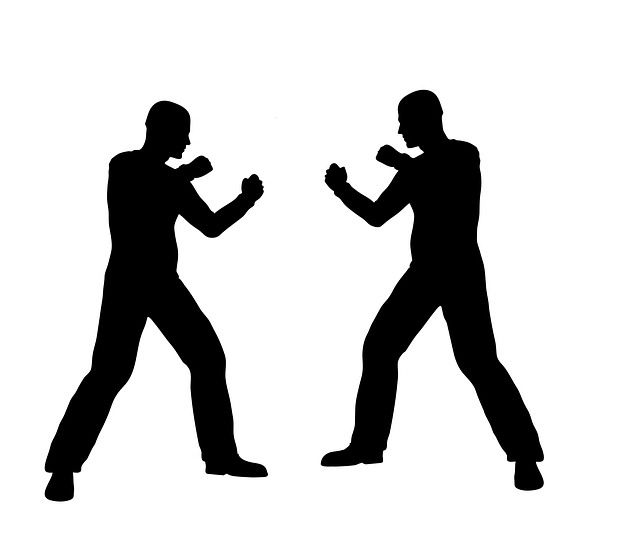Twilight Struggle: A Deeper Look at the Dream About Killing Someone in Self-Defense

This article explores the enigmatic realm of dreams, focusing on one quite unsettling scenario: dreaming about killing someone in self-defense. Delving into dream interpretation, psychology, and subconscious messaging, we’ll decode the meanings and potential implications of such distressing nocturnal narratives.
I. Introduction
A. Defining the Subject: The Concept of Killing in Self-Defense Dreams
Dreams are the language of our subconscious, often reflecting our deep-seated feelings, thoughts, or anxieties. While all dreams can feel bewildering or surreal, those involving violence, specifically dreams about killing someone in self-defense, can be particularly distressing. These dreams involve scenarios where the dreamer is under attack, feels threatened, and ultimately takes another person’s life to protect themselves. While such dream scenarios can be disconcerting, it’s important to remember that they are metaphoric and symbolic and don’t denote a desire or intention to harm others. Unraveling the meaning of these dreams requires a journey into the depths of one’s subconscious and an understanding of dream symbolism.
B. Importance of Interpreting Dreams
Dreams serve as an essential gateway to understanding our internal world. From a psychological perspective, they’re seen as a dialogue with our subconscious mind, revealing insights that our conscious mind may overlook or suppress. Even the most disturbing dreams can have meaningful messages, and dreams about killing in self-defense are no exception. Interpreting these dreams can illuminate our deepest fears, unresolved conflicts, or latent aggression. It can also explain how we respond to perceived threats or aggression in our waking lives. Delving into interpreting such dreams isn’t an exercise in morbidity but rather a path toward greater self-understanding and personal growth. The key is approaching them with an open mind and a willingness to explore what lies beneath the surface of our consciousness.
II. Understanding the Basics of Dream Interpretation
A. The Role of the Unconscious Mind
As the term implies, the unconscious mind refers to aspects of our mental process that are not immediately available to our conscious awareness. However, they profoundly influence our thoughts, behaviors, and dreams. Swiss psychiatrist Carl Jung posited that dreams are the unconscious mind’s way of communicating with our conscious self. This implies that dreams, even unsettling ones about killing in self-defense, are not random but hold clues about our subconscious fears, desires, and conflicts. Understanding the unconscious mind and its intricate workings can help us unravel the threads of our most perplexing dreams.
B. The Language of Dreams: Symbolism and Metaphors
Dreams speak in a language steeped in symbols and metaphors. Violence in dreams, such as killing someone in self-defense, does not typically mean literal violence. Instead, such acts may symbolize a struggle, a drastic change, or a need to eliminate negative aspects of oneself or one’s life. The people in your dreams may represent your personality or life situations. Understanding that dreams use the language of symbols and metaphors helps us decode their messages and grasp their significance.
C. Emotional Influences on Dream Content
Our emotional state significantly impacts the content of our dreams. Dreams often reflect our emotional reactions to life events, both past and present. For instance, if we feel threatened, attacked, or victimized in our waking life, we may dream of defending ourselves, sometimes violently. These dreams can act as emotional pressure valves, allowing us to release pent-up feelings that we may not consciously acknowledge or express.
III. Decoding Dreams of Defensive Homicide
A. Psychological Perspectives
From a psychological standpoint, dreams about killing someone in self-defense may signify a range of internal processes. They could indicate a confrontation with aspects of oneself that one deems harmful or unacceptable – a symbolic struggle between the ego and the shadow self, as per Jungian psychology. Alternatively, they could point towards a perceived threat in waking life, a need for assertiveness, or unresolved anger.
B. Cultural Contexts
The interpretation of dreams also depends significantly on cultural contexts. Different cultures have varying beliefs and interpretations about dreams. In some cultures, dreaming about self-defense killing might signify strength and resilience; in others, it might symbolize internal turmoil or conflict. To fully interpret such dreams, one must consider the cultural lens through which the dreamer views the world.
C. Possible Triggering Events
Certain events or experiences in our waking lives can trigger specific dream themes. For instance, experiencing a threat, conflict, or significant change might lead to dreams about self-defense killing. Alternatively, these dreams could reflect a struggle with personal identity, self-esteem, or feelings of powerlessness. Identifying potential triggering events can offer valuable insights into why these dreams occur and what they might mean.
IV. Common Themes in Self-Defense Killing Dreams
A. Encountering a Threat
Encountering a threat is a recurring motif in dreams about self-defense killing. The threat can represent any situation or emotion in waking life that the dreamer perceives as harmful or menacing. This could range from a toxic relationship or stressful work situation to feelings of vulnerability or fear. The threat often mirrors the dreamer’s emotional state, reflecting internal anxieties or concerns.
B. Confronting the Aggressor
Another common theme is the confrontation with the aggressor. In dreams, the aggressor may symbolize a facet of the dreamer’s personality, a person in their life, or a problematic situation. Confronting the aggressor can signify an attempt to face one’s fears, stand up to a challenge, or assert oneself in a situation where the dreamer feels powerless or overwhelmed.
C. Delivering the Fatal Blow
While disturbing, delivering the fatal blow is symbolic in nature. It could represent a desire to end a stressful situation or eliminate negative aspects of oneself. Alternatively, it might symbolize a drastic change or transition in the dreamer’s life. The finality of the act often reflects the emotional intensity and urgency surrounding the issue that the dreamer is grappling with.
V. The Implications of Dreams about Defending Oneself to the Death
A. Reflection of Personal Anxiety
Dreams about killing in self-defense can often mirror personal anxiety. This could be anxiety about real-life threats or challenges or more nebulous, undefined fears. The dream provides a symbolic arena for the dreamer to face and confront these anxieties, offering a form of psychological release.
B. Indication of Inner Conflict
Such dreams could also indicate inner conflict. The dreamer might be wrestling with moral dilemmas, personal values, or aspects of their identity. The dream’s conflict and violence might reflect the tumult and tension within the dreamer’s psyche, signifying a need for resolution and inner peace.
C. Sign of Repressed Feelings
Finally, these dreams could be a sign of repressed feelings. The violence and intensity of the dream might represent suppressed anger, resentment, or frustration. The dream could be a wake-up call, highlighting the need to acknowledge and address these repressed emotions consciously and healthily.
VI. Ways to Respond to Disturbing Dreams of Personal Protection
A. Seeking Professional Guidance
If dreams about killing in self-defense persist or cause significant distress, seeking professional guidance can be beneficial. A therapist or counselor, particularly one trained in dream interpretation or Jungian analysis, can offer insights into the dream’s symbolism and help explore underlying emotions or conflicts. They can also provide coping strategies to manage anxiety or fear stemming from these dreams.
B. Journaling and Self-Reflection
Journaling can be an effective tool for making sense of disturbing dreams. Documenting the dream in detail as soon as you wake up can help you remember and analyze it more effectively. Over time, you may see patterns or recurring themes, aiding in interpretation. Reflection on your feelings, thoughts, and experiences around the time of the dream can provide further insights into its possible meanings.
C. Techniques for Stress Management
Stress and anxiety can trigger unsettling dreams. Thus, stress management techniques such as mindfulness, meditation, yoga, or deep-breathing exercises can be beneficial. Regular physical activity and a healthy sleep routine can also help improve sleep quality and reduce the frequency of disturbing dreams.
V. FAQs
Q: What does it mean to dream about killing someone in self-defense?
A: Dreams about killing in self-defense typically symbolize a struggle or confrontation. The threat in the dream might represent a situation, person, or emotion in your waking life that you perceive as harmful. The act of killing is symbolic, potentially representing a desire to end a stressful situation, assert yourself, or eliminate negative aspects of your life.
Q: Are dreams about self-defense killing a sign of aggressive tendencies?
A: Not necessarily. While these dreams involve violent scenarios, they’re often more about conflict, struggle, or fear than literal aggression. They can represent a symbolic struggle with aspects of oneself or external situations. However, if such dreams cause distress or affect your daily life, it’s advisable to seek professional help.
Q: Can dreams about killing in self-defense reflect guilt or remorse?
A: In some cases, these dreams might reflect guilt or remorse, particularly if you’ve avoided responsibility for your actions or neglected your moral or ethical principles. The dream could be urging you to face your guilt and make amends.
Q: Are these dreams a prediction of future events?
A: No. While dreams can reflect our feelings, fears, and desires, they do not predict the future. Dreams about killing in self-defense are symbolic and metaphorical, not literal. They reflect internal psychological processes rather than external future events.
Q: Why do I feel so disturbed after dreaming about killing in self-defense?
A: Such dreams can be emotionally intense and vivid, leaving a strong impression upon waking. These dreams’ violent nature can elicit fear, guilt, or anxiety. Remember, these dreams are symbolic and don’t make you violent.
Q: How can I stop having dreams about killing in self-defense?
A: Addressing the underlying emotions or situations triggering these dreams can help. This could involve resolving conflicts, managing stress, or dealing with fears or insecurities. If the dreams persist or cause significant distress, professional help should be sought.
Q: Can these dreams be a sign of a mental health problem?
A: While disturbing dreams can sometimes be associated with stress or anxiety disorders, a single type of dream isn’t usually indicative of a mental health problem. However, it might be worth consulting a mental health professional if such dreams are accompanied by other symptoms such as persistent anxiety, low mood, or difficulty functioning.
VI. Conclusion
A. Reiteration of Key Points
This exploration into the realm of dreams about killing in self-defense underscores the intricacy and symbolism of our dream world. These dreams, while unsettling, can serve as a mirror to our subconscious, highlighting internal conflicts, anxieties, or suppressed emotions. Their interpretation hinges on a complex interplay of personal, psychological, and cultural factors.
B. The Impact and Significance of Dreams about Killing in Self-Defense
While dreaming about killing someone in self-defense can be disconcerting, it’s essential to remember that dreams are not literal representations of our desires or actions. They are symbolic narratives spun by our subconscious to help us better confront and understand our inner world. By shedding light on these nocturnal narratives, we can gain insights into our subconscious mind, improve our self-understanding, and better navigate our waking life.
VII. Suggested Readings
The world of dream interpretation has long been a subject of intrigue, with countless scholars and experts penning their insights. For readers keen to delve deeper into understanding their nocturnal visions and the mysteries of the subconscious mind, the following books are highly recommended:
- “The Interpretation of Dreams” by Sigmund Freud – A groundbreaking work that introduced dream analysis to the field of psychoanalysis.
- “Man and His Symbols” by Carl G. Jung – A dive into the symbolic language of dreams and its profound connection to human psyche.
- “Dreams: Hidden Meanings and Secrets” by Ann Faraday – A comprehensive guide to understanding and interpreting dreams, offering a blend of theory and practical techniques.
- “The Dreamer’s Dictionary” by Stearn Robinson and Tom Corbett – An easy-to-use reference guide providing insights into common dream symbols and themes.
- “The Dream Book: Symbols for Self-Understanding” by Betty Bethards – A holistic exploration of dreams, their symbols, and the potential spiritual messages they convey.
Engaging with these readings can provide an enhanced understanding of one’s dreams, leading to deeper self-awareness and personal growth. Each book offers a unique perspective, making it easier for readers to find the approach that resonates best with them.






